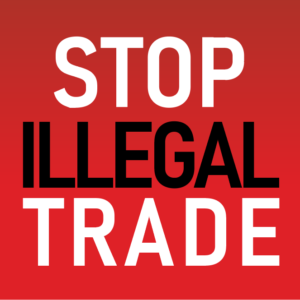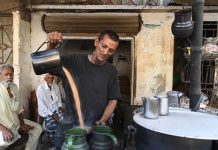LAHORE: Lowering import duties or taxes has seldom reduced the quantum of illicit trade in our country, as the problem lies in the support that lawbreakers get from those who are supposed to collect these levies.
No reliable study is available on the evasion of duties and taxes in domestic and foreign trade conducted in our country. Illicit trade includes all types of economic transactions involving goods and services where the government taxes are either not paid at all or are partially paid.
Since our imports are very high, evasion at the import stage is also high. There is outright denial of all levies if an item is smuggled instead of importing it from the official channel.
The duties and other levies are diluted if some item is imported at lower than its actual value (the importers arrange the balance payment to the supplier through informal channels).
At the domestic level, there are small producers that do not pay sales tax or income tax on their product or services.
Then there are large manufacturers that under-report their actual production to avoid sales tax, excise, and income tax. Service providers pocket most of the service amount through cash and give a receipt of the balance amount on which the services tax is paid.
All these illegal activities are conducted under the nose of those who are deputed by the state to check tax abuse. Obviously, the overlook is not for free. Various measures to curb these practices have failed.
These malpractices are not as widespread in our regional economies that include India, Bangladesh, and Sri Lanka. All these countries inherited the same bureaucratic system that is in vogue in our country.
It is an enigma why we have performed so low. It is not the case of traders leaving no trace of their tax fraud. It is simply a case of connivance between the state machinery and unethical businessmen.
All this is happening at a time when we are starved of revenues and begging around the world for loans to finance our expenditures. The regulators look the other way even in cases where there is no doubt that the item is smuggled.
Take for instance tyres. There are a few tyre sizes that are not produced in Pakistan. Thousands of heavy vehicles are dependent on these tyres, but very few of these tyres are imported.
Annual requirement of these tyres is in millions. One fails to understand what stops the authorities from confiscating these tyres from the market and charging the appropriate taxes.
An interesting case in this respect is that Pakistan’s largest importer stopped producing truck tyres as the same tyres were either smuggled or imported at nominal value from China. On its recommendation, the government abolished the import duty on that tyre size.
The company imported those tyres from China, but could not dispose of in the market because the smuggled tyres were still cheaper (smugglers saved the 15 percent sales tax that was levied at that time).
Higher duties are not promoting smuggling, and various attempts to curb smuggling by reducing duties on tyres, ceramic tiles, crockery, and numerous other items have failed to curb illicit trade. The lowered duties were a boon for those who were importing these items at under-invoiced values. A study would reveal the decline in government levies due to reduction of duties without having any impact on imports.
The state is safely losing around Rs700 billion annually due to smuggling, under-invoicing and under filing.
Then there is another glaring case of tobacco trade. There are around 52 cigarette manufacturers in Pakistan. The top two companies command 60 percent of the market, but pay 98 percent of the total taxes collected from tobacco trade.
It should be probed how the remaining manufacturers are managing the 40 percent share by depositing only two percent of the taxes. Ideally tobacco or smoking should be totally banned in our country. It spreads cancers and various lung ailments.
The state should at least ensure that the punitive and justified taxes on tobacco products are fully collected. There should be zero tolerance on this count.
But malpractices are rampant in the market. Minimum price of a cigarette pack, after collection of all taxes, is fixed by the government at Rs62.72, while locally manufactured cigarettes are openly marketed at Rs20-30.
Corrupt bureaucracy should not play with the health of our citizens. There are certain avenues that should be strongly regulated and curbed.
Pakistan is losing Rs800 billion on account of illicit trade annually and add to it Rs1,200 billion that the state-owned enterprises siphon off from the exchequer. With little determination we can add this amount in our revenues and reduce our fiscal deficit.
Source: The News – January 27, 2022














